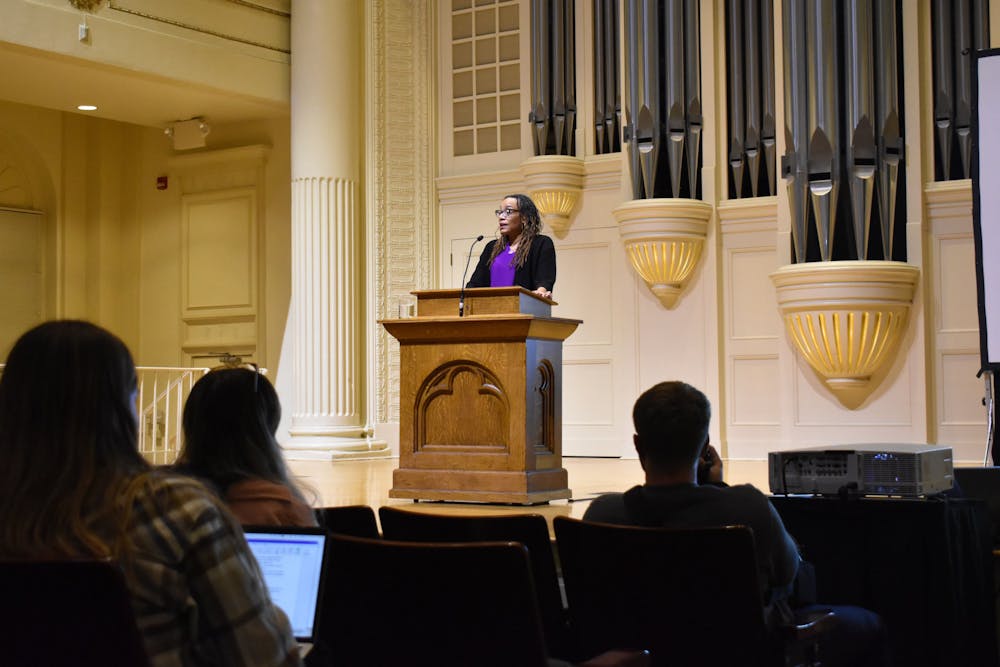Dorothy Roberts, a social justice advocate and award-winning scholar, explained race, gender and social class inequalities — and their effects on reproductive rights in America — on Oct. 20 at Elon University’s Whitley Auditorium.
Roberts, this year’s Periclean Scholars guest lecturer, is a professor at the University of Pennsylvania as well as the founding director of the Penn Program on Race, Science and Society.
“Is it a right if I cannot afford the services necessary to make reproductive decisions?” Roberts said.
Roberts said America has not had true reproductive rights for the entirety of history, specifically for Black women, as a right means government representatives cannot keep individuals from practicing such actions — a promise that has not always been kept.
For Emily Maher, an Elon student who attended the talk, the information on the unsubstantiated “crack baby” theory of the late 20th century was most alarming. The theory claimed cocaine had a peculiar effect on fetuses in utero and deprived them of social consciousness, causing them to become convicts.,
“It was very eye opening to see all the different layers behind one false theory and how it affects the views and actions of the general public,” Maher said.
Roberts provided a series of evidence explaining the long history of reproductive injustices for Black women — including events surrounding the Eugenics Era, which is known for forcing American women to be sterilized if it was thought that their child would be “socially unfit.”
Roberts said a Black woman's fertility was often quoted to be a biological threat or social problem, with assumptions often found due to vile stereotypes. False stories, such as the myth of the “welfare queen,” proposed that Black women would only have children for monetary purposes.
With this preconceived notion in place, Roberts said the criminalization of pregnancy had become a staggering issue in society. With a fear of children being born “socially unfit,” pregnant women who had given birth to still born children were also at risk of being criminalized.
She provided the example of Regina McKNight, a women convicted for 20 years on a count of homicide by child abuse for giving birth to a stillborn baby.
Additionally, Roberts discussed the staggering amount of Black children in the foster care system.
“Recent studies have shown that 12% of Black children will be taken from their families by the age of 18, with more than 50% of Black children as the subject of child welfare situations before the age of 18,” Roberts said.
Roberts suggested that the government had more focus on increasing adoption rates, rather than rehabilitating Black mothers and families and reconnecting them with their children. She discussed the Adoption and Safe Families Act of 1997, as this act had an underlying purpose — not to figure out how to keep children from foster care, but to speed up the termination of parental rights by getting children adopted.
Roberts then spoke on the coined term of “reproductive justice.” As reproductive choice never seemed to truly exist, reproductive justice was brought about and supported the human right to have or not have a child, as well as the right to parent a child in a healthy and safe community.
Roberts closed by encouraging her audience to think about how to join movements for social change.
“Movement solidarity is essential to building a society where people can truly have autonomy over their bodies and truly thrive in our society,” Roberts said.


